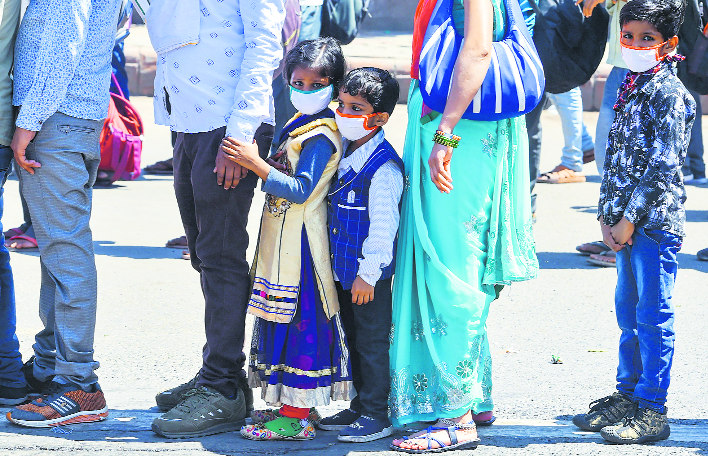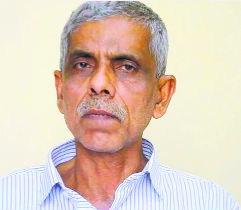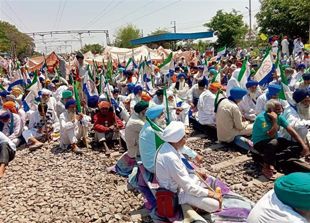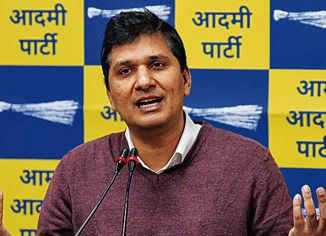
Detached: Because of the lockdown, the vitality of our techno-economic culture has stopped. Yet, amid this economic loss, we are seeing connectedness with biodiversity.
Avijit Pathak
Sociologist
I am privileged. As a university professor, I am assured of my monthly salary. Hence, the lockdown is unlikely to affect me severely. I can cherish social distancing to save me from the coronavirus. Unlike migration workers exploited by the politician-contractor mafia, I need not find myself in the streets, and experience police brutality and coldness of the indifferent State. Furthermore, the outside world — its offices, malls and cinema halls — cannot divert me. As I am confined to my residence, I have to be with myself. And this is an exceedingly difficult task. It causes anxiety. It causes fear. And above all, it generates a sense of guilt. This is the paradox of being privileged.
Yet, I allow myself to contemplate. I ask myself: Once the coronavirus is combated, would we really alter our priorities, redefine our life-projects and restructure our polity, economy and society? I would not deny that there are moments when a sense of pessimism haunts me. We should not forget that what poisons our collective existence is a mix of surveillance, hierarchy, exclusion and culture of stigmatisation. And today, as the coronavirus has further shattered the social fabric, we are witnessing the heightened manifestations of these pathologies. In the name of social distancing (see the politics of this term; while temporal physical distance may be a biological necessity to reduce the spread of the virus, ‘social distancing’ is about privilege and exclusion), we have further intensified the already existing anonymity in our society — particularly, in cities and urban spaces. In the name of ‘safety’, we have closed the windows of our consciousness. ‘Others’ die; and this death is devoid of any meaning; it is just a statistical phenomenon. Or, for that matter, migrant labourers assembling in huge numbers at Delhi’s Anand Vihar bus stand for moving towards their villages to escape from this hostile city is just a WhatsApp visual many of us consume from our insulated apartments in gated communities.
Again, the normalisation of surveillance in our times has destroyed the possibility of trust as a spontaneous human response. These days, it is impossible to welcome a guest who doesn’t show you a medical certificate indicating that he is not infected by the coronavirus. Moreover, in a caste-ridden society, we are used to the practice of stigmatising and boycotting the ‘untouchable’ castes; and hence, it does not take much time to use it so brutally in the new context. Is it, therefore, surprising that the doctors treating the coronavirus victims are being asked to vacate their houses, or, for that matter, local hospitals refuse to admit patients who might have shown symptoms like fever and cough. A ‘potential’ victim, it seems, is a new ‘untouchable’ deprived of the human touch and compassion. In other words, it is not merely a virus that kills human bodies; it is also a virus that kills the very idea of society — the art of connectedness and relatedness. And herein lies the ultimate danger. In the coming days, even when the coronavirus is over, the fear and associated notion of ‘safety’ can be exploited for strengthening the idea of an authoritarian and surveillance-centric state. In the dystopian age, we would use not merely masks and sanitisers; we would retain ‘safe’ distance from one another, carry medical certificates with us for entering public space, and idealise the macho-narcissistic leaders for taking us to the ‘war front’.
However, it is difficult to lose hope in human possibilities. Who knows that in the post-coronavirus era, we might like to engage in a paradigm shift — from reckless neoliberal global capitalism to compassionate welfarism or socialism; from technocratic developmentalism to a mode of eco-sensitive living based on organic needs rather than market-induced greed; or from warriors to wanderers? One thing is clear. The coronavirus has proved it once again that in a ‘risk society’, nobody (neither the mighty US nor the turbulent Iran) is safe; and as risks are global, we ought to overcome all sorts of limiting boundaries that often cause xenophobia, and experience our shared destiny. Likewise, the crisis is making it clear once again that we need a rigorous public health system (not the neoliberal doctrine of commodification of health); and, as the stories of starvation death because of the lockdown are coming from India, we are realising that our ‘progress’ is illusory as it excludes, exploits, hierarchises and stigmatises a significant section of our population. Possibly, this is also the time to realise that real progress is impossible without what the likes of Gandhi and Marx taught us — sharing, not accumulation; distributive justice, not monopoly; and communitarian living, not fragmentation or exclusion.
In hard times, we also experience the glimpses of truth. True, because of the lockdown, the vitality of our techno-economic culture has stopped. Yet, amid this economic loss, we are also seeing neelgais and deer roaming around expressways in a city like Delhi; and with the reduction of air and noise pollution, we are seeing the distant stars in a clean sky amid the poetry of silence. Does it convey a message to us? Is the universe telling us that we should not see ourselves as proud conquerors, and we ought to live as humble wanderers with a sense of gratitude and organic connectedness with the entire biodiversity, and the rhythm of life and death?
This sort of paradigm shift would demand a reasonable degree of austerity from the privileged classes. And for many of us, it would demand a new mode of living that makes us capable of seeing life beyond the pathology of conspicuous consumption. This is possible only if we are willing to realise that techno-science in the form of the vaccines or ventilators is not the only solution to the crisis the coronavirus has led to.
Join Whatsapp Channel of The Tribune for latest updates.




























